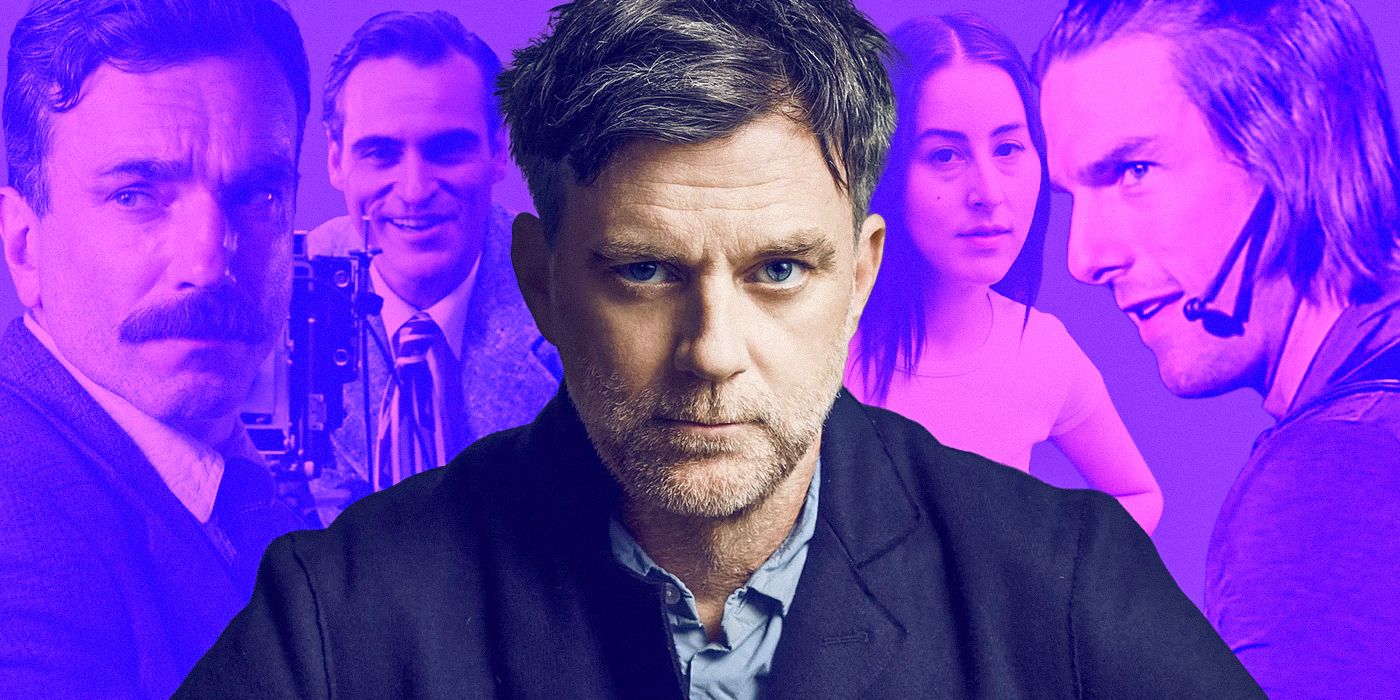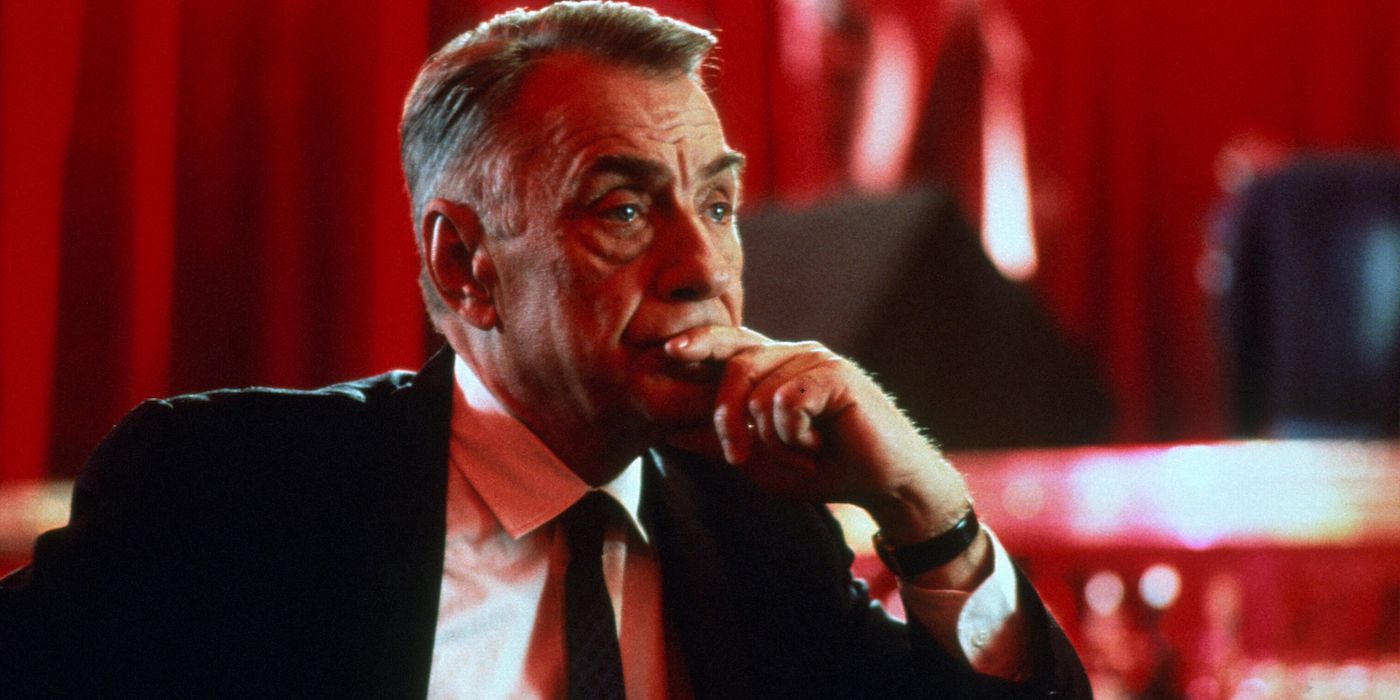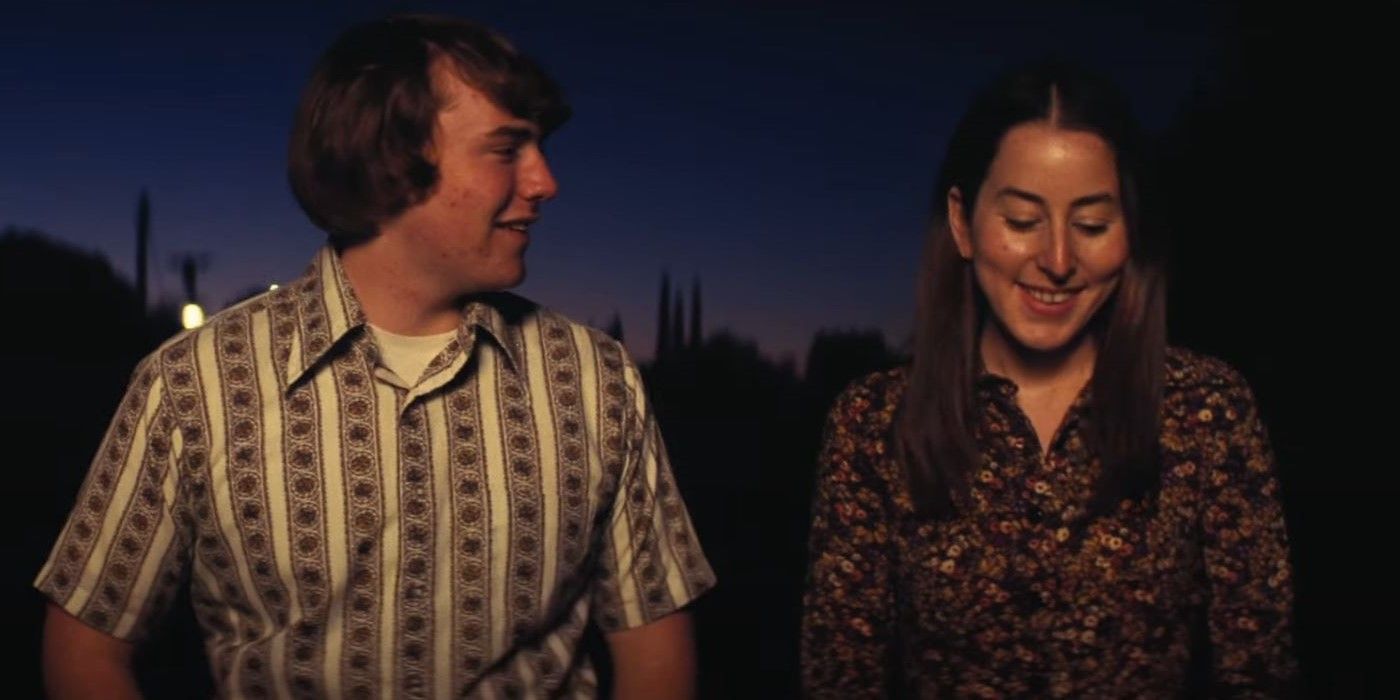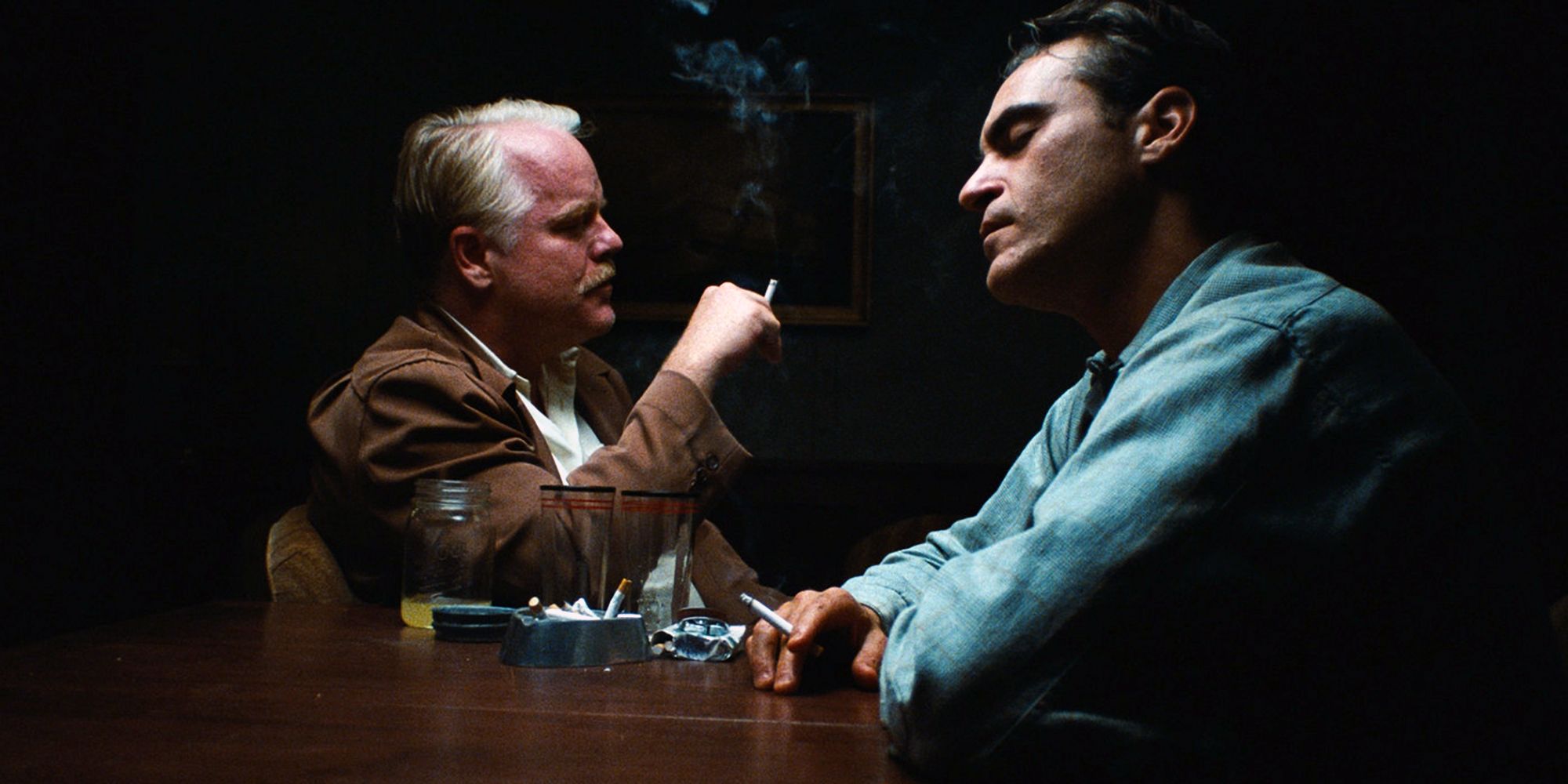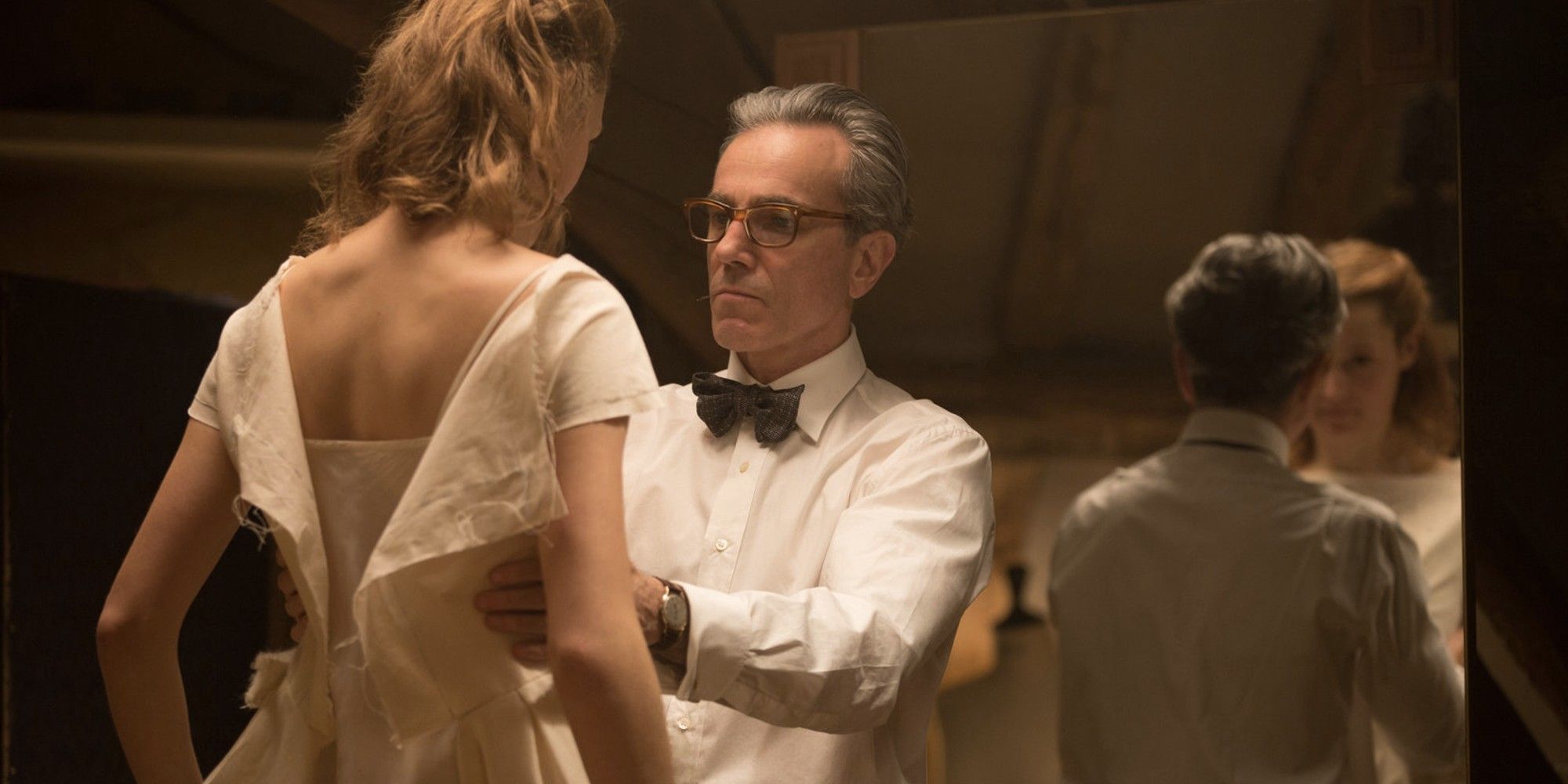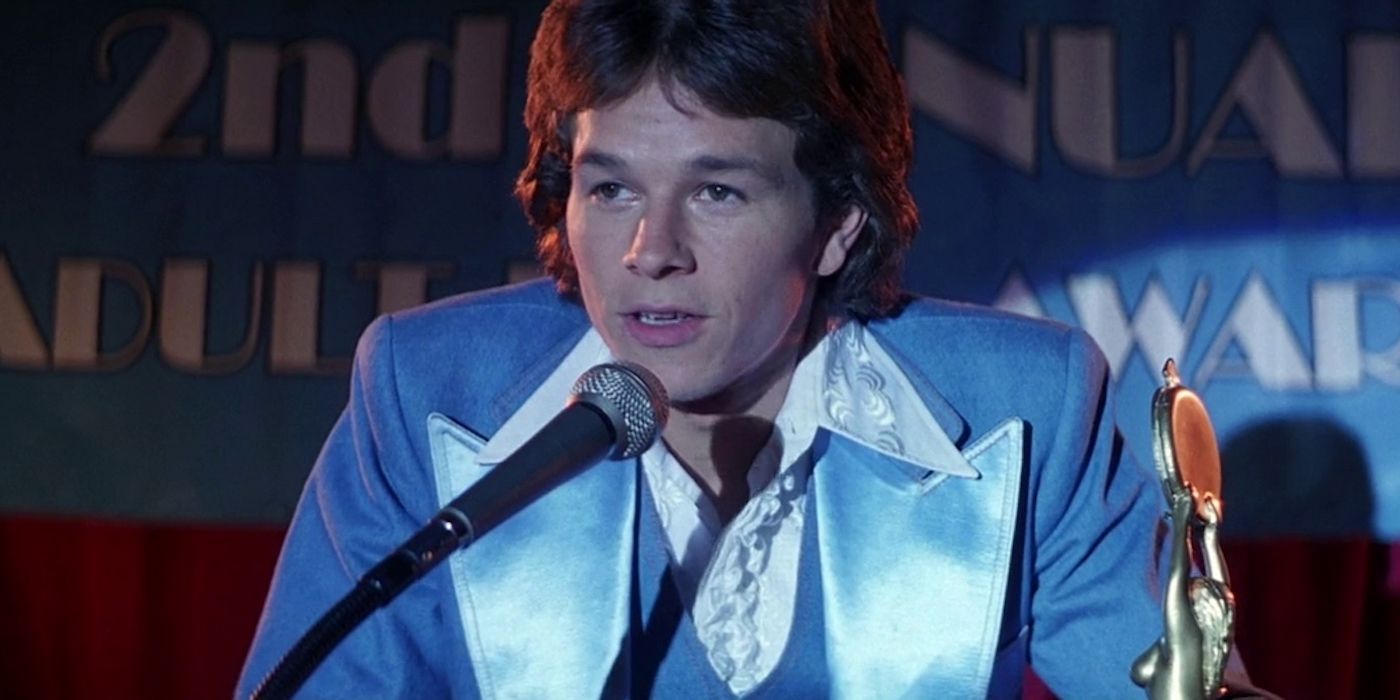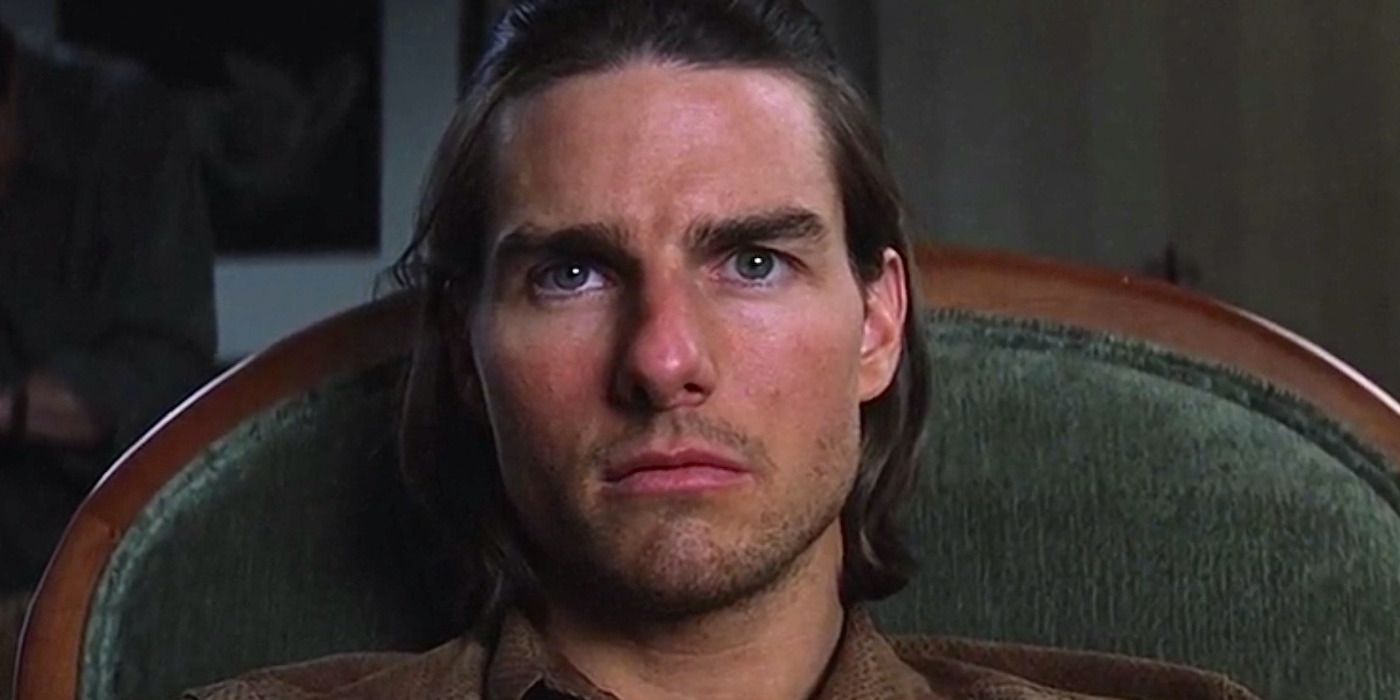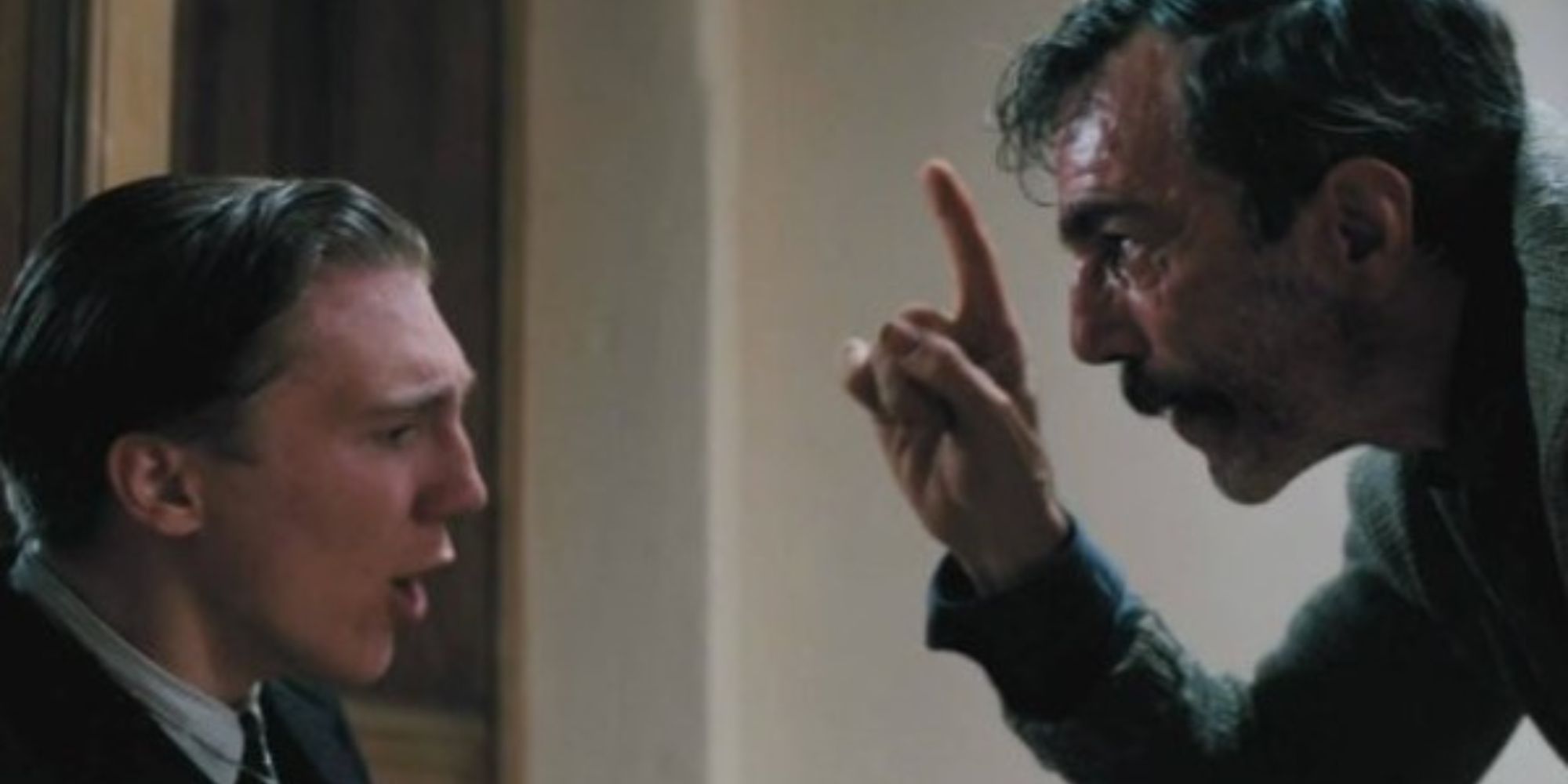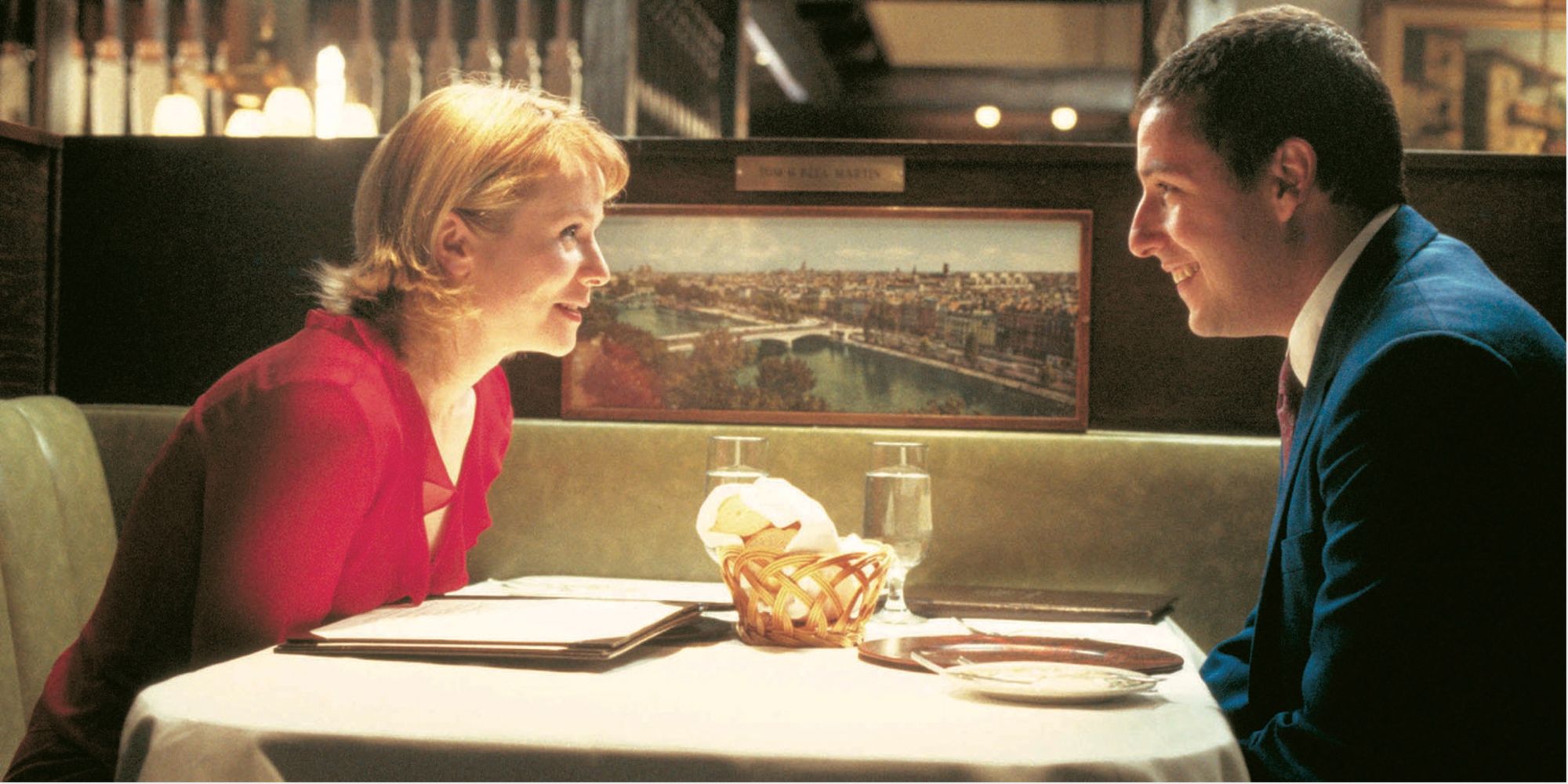Paul Thomas Anderson has made nine films, and none of them are bad. Such a track record immediately puts Anderson in rarefied air. How many other directors can boast eight in a row with no misses? Kurosawa? Hitchcock? Scorsese? Anderson belongs to this company and then some, his work bursting at the seams with emotion, invention, and a palpable love of the game.
Anderson's pure enthusiasm for cinema at times results in films and flourishes that wear their influences on their sleeves -- the aforementioned Scorsese, Kubrick, Altman — but it's clear Anderson is no pastiche player. While running through his filmography, you can see the maestro figure out how to codify, crystallize, and synthesize all the tools at his disposal into a brand-new style. And then, exactly halfway through his run, he reinvented himself and did it all over again, his back half of films feeling demonstrably different than his front half, the result of an artist continually interested in growing, maturing, figuring things out.
From his incisive screenplays, his virtuoso camerawork, his unparalleled understanding of the primal relationship between "image" and "sound," and his truly remarkable guidance with actors, Anderson proves time and time again what a pure film director he is. With all this in mind, here are Paul Thomas Anderson's movies ranked from, well, let's call it "least best" to "most best." The camera pushes in, Jon Brion's score swells, and here we go...
9. Inherent Vice
I don't think I've ever laughed harder at a movie I didn't fully understand than Inherent Vice, what I might consider Anderson's purest comedy. But I don't think "comprehension" is on the film's mind. Anderson had quite the task ahead of him when adapting Thomas Pynchon's novel -- even though his book was considered one of his most accessible, Pynchon still has a deserved reputation for "not being accessible." And Anderson's screenplay, audaciously and respectfully, gives us pretty much no anchor to the specific world and wackadoo flourishes therein. Joaquin Phoenix plays Doc Sportello, a shaggy, stoned, burned-out private detective on a new case he understands maybe 2% more than his audience. The details of the case, and subsequently Anderson's plot, involve land developers, missing persons, and drug smuggling -- but they all come second to this film's excellent usage of texture, vibe, and comic imagination. Phoenix is delightfully endearing as a man trying his best continually finding new ends of the rope, and his supporting cast has the most fun possible getting in his way. Martin Short is more untethered than usual, Katherine Waterston simply commands the screen, and Josh Brolin truly shines as the deadpan comedy MVP. While regular Anderson DP Robert Elswit has toned down many of his hyperkinetic "Andersonisms," what he does capture strikes with its delicious color palette and surprisingly grainy stock. If you ever wanted The Big Lebowski to be 10 times sillier, 10 times grimier, and 10 times harder to understand, Inherent Vice is your new favorite midnight movie.
8. Hard Eight
The first of Anderson's hard eight, Hard Eight is a movie that loves being a movie. It's assured in every facet of its construction and composition, showing surprising patience that even rivals some of Anderson's later work, let alone the work of a first-time feature filmmaker. But it's also eager to flex. Anderson and Elswitt's visual collaboration begins in full force, with pushes and inserts and incredible Las Vegas backdrops all over the damn place. Anderson and Jon Brion's sonic collaboration (alongside co-composer Michael Penn) also gets its start, yielding a score with genuine menace and tantalizing invention. And Anderson the writer is clearly in love with his actors saying cool-ass "movie dialogue." Luckily, his actors are all down to clown, and more importantly, down to sell it without hard-selling it -- you can feel their eagerness to play in this new talent's sandbox even as their performances lock in impressively lived-in, authentic zones. Philip Baker Hall owns the picture as Sydney (Anderson's original title), a consummate professional at the business of Las Vegas living. He takes a down-on-his-luck John C. Reilly (stellar) under his wing, mentoring him into something resembling an independent man, and a helluva gambler. But when a genre plot starts cooking (more than halfway through the thing! such patience!), involving soul-hardened prostitute Gwyneth Paltrow and tough-talking casino security Samuel L. Jackson, everything about Sydney's well-measured world threatens to unravel. The aim and scope of this film is designedly minor, and its depiction (and at times icky male gaze camerawork) of women is too stuck in "movie-world" to earn the nuanced evolution it needs, but Hard Eight still offers tons of cinematic panache and joy. Hot take: Anderson does Tarantino better than Tarantino here.
7. Licorice Pizza
Tenderness and warmth aren't features one usually attributes to Anderson, as he usually administers these sparingly throughout his work. But that's not the case with Licorice Pizza, in which Anderson wears his heart on his sleeve with this story of 15-year-old Gary (Cooper Hoffman), who becomes enamored by the 25-year-old Alana (Alana Haim) in the 1970s San Fernando Valley. For Anderson, Licorice Pizza almost seems like his most conventional story, complete with a charming love story, some of his funniest scenes to date, and the most anxiety-inducing scene Anderson has crafted since Alfred Molina was coked out in Boogie Nights. Anderson has always excelled with supporting characters, and that's certainly true here as well, as Sean Penn, Tom Waits, and Benny Safdie all get their moments. But it's Bradley Cooper's unhinged Jon Peters that feels like a bomb has gone off in the middle of this story of heart and young love. Licorice Pizza isn't without its problems, but it's a great example that Anderson doesn't have to be the maker of dark, challenging work—sometimes, he can be fun as well. — Ross Bonaime
6. The Master
Containing some of the best performances Anderson will ever yield, The Master is a captivating, inscrutable, demanding-to-be-scrutinized film that yields richer rewards and more questions upon each watch. The elevator pitch version of the film is: Philip Seymour Hoffman, one of Anderson's best muses, is an L. Ron Hubbard surrogate, the leader of a Scientology-esque cult. Joaquin Phoenix is an adrift, troubled Navy vet looking for direction. And Phoenix joins Hoffman's crew, resulting in the psychological examinations of both. But to boil it down to such palatable essentials would be to ignore the film's primal, uncontrollable muckraking, its aimless-feeling aims (a merit, not a fault!). Phoenix's physical unpredictability here is matched only by his emotional volatility. His performance is commandingly watchable; the fact that he won the Oscar for Joker over this drives me cuckoo. He serves as the perfect foil for Hoffman, so eager to retain his buttoned-up humanity, but so clearly tickled by Phoenix's animalistic id. These two titans clash and waver, struggling to define what makes a self a self, struggling to either keep their inherent capacities for rage contained or unleashed. And through it all, Amy Adams sneakily steals the picture, her Peggy Dodd begins perhaps the only one who truly understands how to capture and retain power. The craft on this film staggers, with unreal 70mm photography from Mihai Mălaimare Jr. and sparse, chilling, woodwind-focused music from Jonny Greenwood. The Master will make you feel all kinds of unsettled after watching. You won't be sure why. But you'll know you need to find out.
5. Phantom Thread
A twisted, self-contained, thrilling, and dare I say loving chamber drama of the highest quality material. Phantom Thread is the perfect love story for filmgoers who hate love stories, a romantic comedy radiating with kinky energy, a warning of and love letter to obsessions gone amok. Daniel Day-Lewis is beyond fastidious dressmaker, a craftsman who makes sterling pieces for his sterling clientele because of the stubborn way he arranges every detail of his life. And Vicky Krieps is the woman who's gonna fuck it all up. First seen working as a restaurant server, Day-Lewis is smitten with her from the moment she takes his very odd breakfast order. Krieps, smitten right back, happily inhabits his oddly incubated world. And the two subsequently tango and wrestle for control, power, order or chaos -- all the while facing brittle pieces of uncomfortable truths from the always-professional Lesley Manville, Day-Lewis' sister (the absolute MVP of the film; I love every damn second of her don't give a heck attitude). The thing I love most about this film, even on rewatch, is how unpredictable yet inevitable the narrative thread takes us. Even if you think you know where it's going, you simply do not until it gets there. And once it does, boy howdy will you have a sticky smile on your face. Bonus points on this gem: No DP is formally credited, because Anderson just kinda did it himself! And it looks stunning! Unreal talent, this guy!
4. Boogie Nights
Goodfellas but with porn? Yes, and no. Boogie Nights unquestionably prays at the altar of Scorsese, from its "rags-to-riches-to-paranoid-corruption-of-the-human-soul" narrative, to its splendid camerawork (long takes in clubs, whip-pans and push-ins, etc.), to its epic, empathetic examination of folks we typically look at with disdain. But like the best cinema-makers who clearly love cinema, Anderson takes these touchstones as diving boards, not the whole pool. Mark Wahlberg, giving unquestionably his best performance to date, stars as "Dirk Diggler," really Eddie Adams, a young man blessed with a "huge gift" who becomes the country's biggest pornographic sensation under the tutelage of master filmmaker Burt Reynolds and a found family of performers and crew-members like Julianne Moore, Heather Graham, John C. Reilly, Don Cheadle, William H. Macy, Philip Seymour Hoffman, and more. Anderson loves these characters deeply, to their raw nerves and souls, giving each performer ample opportunity to explore He also loves the business of filmmaking, pornographic and otherwise, inviting his audience to submerge themselves in the beautiful, optimistic, romantic, poetic facets of the craft and relationships forged (goodness, Hoffman is great at playing low-status in this). So when Anderson (and Macy, no spoilers) flip the switch into darkness, it feels less like a fun or exhilarating lightning bolt, and more like a painful, agonizing descent into a world these folks don't deserve (that "Sister Christian" sequence, I mean, my God). Boogie Nights is a movie thrilled to be here, an exuberant work that demands to be appreciated by its creator. No qualms here.
3. Magnolia
An American epic, a sprawling dive into the deep end, a flurry of tones and flourishes, an absolute monster flex. Magnolia feels weirdly contemporary and clearly defined by 1999, the peerless cinematic year from which it sprung, marked by its bravura insistences that something new must eat everything old. Anderson's work here is like if Rube Goldberg got to control a shopping mall: Every single cinematic toy and device is given time to shine despite its first-blush counter-intuition. But wouldn't you know it, it all makes sense when put together as a puzzle. But it's not an intellectual exercise; in fact, Magnolia is arguably Anderson's most sentimental movie, a work that cuts its own heart out and wears it on both its sleeves and its pants for good measure. To narrow down the scope of Magnolia into a logline feels unhelpful, but my best stab is this: A series of Americans try their best. From John C. Reilly and Melora Walters' desperate attempts at connection beyond past sins, to Julianne Moore's desperate insistence to be seen and noticed, to Tom Cruise's desperate attempts to hide his inherent traumas and pains behind toxic bravado, to the other 18,000 incredible actors doing incredible, incredible work, Magnolia is a film of yearning, of grabbing something you can see desperately but just can't quite touch. By the time the film stops in its tracks for a surprising musical number, in which every character sings a line from a heartbreaking Aimee Mann tune, not only will you already be swept away by the film's designs to even register this as self-indulgent, you will be crying too hard to care.
2. There Will Be Blood
In 2007, Anderson flipped into his "back four" filmmaking mode with a fearsome, fierce, slow-burn bang. Gone were the shiny, saturated, kinetic camera moves, ensemble casts of familiar faces, and even general sense of "love" and "optimism." In its place: Elswit still behind the camera, still shooting the hell out of it, but with an obviously "stiller" sense of pace. A cast anchored by a bonafide screen acting legend (Daniel Day-Lewis) and supported by actors who've never worked with Anderson. And an overview of the human race I would call "fucking bleak." With all of this change in his typical belt of tools, Anderson made an all-timer movie, one we'll dissect and debate for decades to come. There Will Be Blood, from Upton Sinclair's novel Oil!, stars Day-Lewis as Daniel Plainview, who will likely be the best character Anderson will ever create. He's an oil man, possessing a deep mustache and an instantly iconic vocal inflection. If the characters in Anderson's previous films represent everything good about America's id, Plainview is the snarling underbelly embedded in this nation's DNA. He's greedy, callous, consuming, powerful. Throughout the film, we see his single-minded worldview get tested, by his partner and son H.W. (Dillon Freasier) and by Eli Sunday (Paul Dano, also playing his twin brother), who both tries to take the moral high road with Plainview and then tries to chuck him in the muck when he needs to. And what is the inevitable conclusion for Plainview's journey, his crises of conscience? I don't want to spoil anything, but I will say this: Anderson's ending here is probably the best ending he'll ever craft, an utterly gut-punching sequence full of delirious, delicious dialogue and abrupt, irreversible actions. And it ain't exactly "nice." In 2007, this film lost Best Picture to No Country for Old Men -- you ask me, those two titles should've been switched.
1. Punch-Drunk Love
"I have a love in my life. It makes me stronger than anything you can imagine."
This line of dialogue, spoken near the narrative conclusion of Punch-Drunk Love by Adam Sandler, sums up what's going on with every captivating Anderson protagonist. Sandler's Barry Egan, Plainview, Diggler -- all of these and more are powered by a beyond-strong love (of a person, of consuming whatever's in front of them, of fucking, etc.) that gives them beyond-strong, nearly super powers. This line could also be applied to Anderson's success as a filmmaker -- he loves his subjects, his worlds, his language of cinema so deeply that he can't help but render them with unmatched strength. For this clear, powerful, career-spanning thesis statement -- and for like 18,000 other reasons -- Punch-Drunk Love remains my favorite Anderson picture. An absolutely perfect object, this is.
Sandler's Barry is the inverse of his Uncut Gems character -- a constantly beaten-down man who takes every blow dealt with him and internalizes it into emotionally self-facing admissions of defeat. Random crying episodes, pet obsessions with harebrained-seeming ideas, a group of sisters eager to emotionally terrorize him, desperate calls to phone sex hotlines -- Barry needs a life vest, fast. And he finds one in the form of Emily Watson as Lena, a sweet, quiet, empathetic, and odd person herself. As the two realize that what they've been missing is each other, their love blooms into thrilling, unique sweetness -- even as Philip Seymour Hoffman, giving an absolutely titanic performance as a mattress-sales-man-cum-phone-sex-hotline-owner-cum-criminal, closes his grip on Sandler in genuinely shocking moments of genre and violence. But while the forms of darkness will always threaten, love can, and will, give us strength, give us the tools to move forward, give us the tools to live.
And that's that, Mattress Man.

